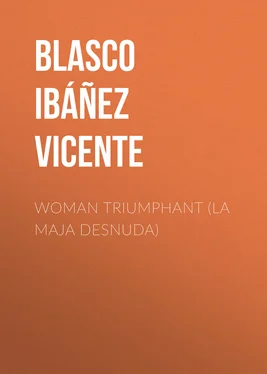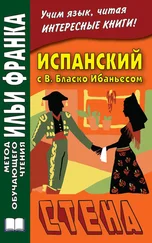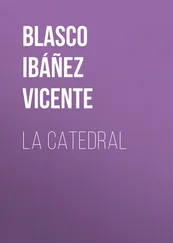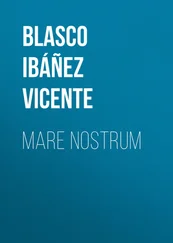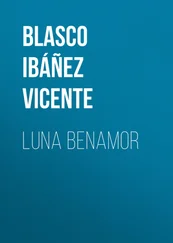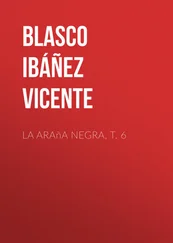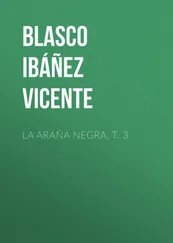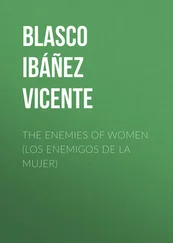Vicente Blasco Ibáñez - Woman Triumphant (La Maja Desnuda)
Здесь есть возможность читать онлайн «Vicente Blasco Ibáñez - Woman Triumphant (La Maja Desnuda)» — ознакомительный отрывок электронной книги совершенно бесплатно, а после прочтения отрывка купить полную версию. В некоторых случаях можно слушать аудио, скачать через торрент в формате fb2 и присутствует краткое содержание. Жанр: foreign_prose, foreign_antique, на английском языке. Описание произведения, (предисловие) а так же отзывы посетителей доступны на портале библиотеки ЛибКат.
- Название:Woman Triumphant (La Maja Desnuda)
- Автор:
- Жанр:
- Год:неизвестен
- ISBN:нет данных
- Рейтинг книги:5 / 5. Голосов: 1
-
Избранное:Добавить в избранное
- Отзывы:
-
Ваша оценка:
- 100
- 1
- 2
- 3
- 4
- 5
Woman Triumphant (La Maja Desnuda): краткое содержание, описание и аннотация
Предлагаем к чтению аннотацию, описание, краткое содержание или предисловие (зависит от того, что написал сам автор книги «Woman Triumphant (La Maja Desnuda)»). Если вы не нашли необходимую информацию о книге — напишите в комментариях, мы постараемся отыскать её.
Woman Triumphant (La Maja Desnuda) — читать онлайн ознакомительный отрывок
Ниже представлен текст книги, разбитый по страницам. Система сохранения места последней прочитанной страницы, позволяет с удобством читать онлайн бесплатно книгу «Woman Triumphant (La Maja Desnuda)», без необходимости каждый раз заново искать на чём Вы остановились. Поставьте закладку, и сможете в любой момент перейти на страницу, на которой закончили чтение.
Интервал:
Закладка:
The trip was decided on. They would go to Venice! Their friend Cotoner said "Good-by," he was sorry to part from them but his place was in Rome. The Pope was ailing just at that time and the painter, in the hope of his death, was preparing canvases of all sizes, striving to guess who would be his successor.
As he went back in his memories, Renovales always thought of his life in Venice with a sort of pleasant homesickness. It was the best period of his life. The enchanting city of the lagoons,—bathed in golden light, lulled by the lapping of the water, fascinated him from the first moment, making him forget his love for the human form. For some time his enthusiasm for the nude was calmed. He worshiped the old palaces, the solitary canals, the lagoon with its green, motionless waiter, the soul of a majestic past, which seemed to breathe in the solemn old age of the dead, eternally smiling city.
They lived in the Foscarini palace, a huge building with red walls and casements of white stone that opened on a little alley of water adjoining the Grand Canal. It was the former abode of merchants, navigators and conquerors of the Isles of the East who in times gone by had worn on their heads the golden horn of the Doges. The modern spirit, utilitarian and irreverent, had converted the palace into a tenement, dividing gilded drawing rooms with ugly partitions, establishing kitchens in the filigreed arcades of the seignorial court, filling the marble galleries to which the centuries gave the amber-like transparency of old ivory, with clothes hung out to dry and replacing the gaps in the superb mosaic with cheap square tiles.
Renovales and his wife occupied the apartment nearest the Grand Canal. Mornings, Josephina saw from a bay window the rapid silent approach of her husband's gondola. The gondolier, accustomed to the service of artists, shouted to the painter, till Renovales came down with his box of water-colors and the boat started immediately through the narrow, winding canals, moving the silvered comb of its prow from one side to the other as if it were feeling the way. What mornings of placid silence in the sleeping water of an alley, between two palaces whose boldly projecting roofs kept the surface of the little canal in perpetual shadow! The gondolier slept stretched out in one of the curving ends of his boat and Renovales, sitting beside the black canopy, painted his Venetian water-colors, a new type that his impresario in Rome received with the greatest enthusiasm. His deftness enabled him to produce these works with as much facility as if they were mechanical copies. In the maze of canals he had one of his own which he called his "estate" on account of the money it netted him. He had painted again and again its dead, silent waters which all day long were never rippled except by his gondola; two old palaces with broken blinds, the doors covered with the crust of years, stairways rotted with mold and in the background a little arch of light, a marble bridge and under it the life, the movement, the sun of a broad, busy canal. The neglected little alley came to life every week under Renovales' brush—he could paint it with his eyes shut—and the business initiative of the Roman Jew scattered it through the world.
The afternoons Mariano passed with his wife. Sometimes they went in a gondola to the promenade of the Lido and sitting on the sandy beach, watched the angry surface of the open Adriatic, that stretched its tossing white caps to the horizon, like a flock of snowy sheep hurrying in the rush of a panic.
Other afternoons they walked in the Square of Saint Mark, under the arcades of its three rows of palaces where they could see in the background, by the last rays of the sun, the pale gold of the basilica gleaming, as if in its walls and domes there were crystallized all the wealth of the ancient Republic.
Renovales, with his wife on his arm, walked calmly as if the majesty of the place impelled him to a sort of noble bearing. The august silence was not disturbed by the deafening hubbub of other great capitals; no rattling of carts or footsteps of horses or hucksters' cries. The Square, with its white marble pavement, was a huge drawing room through which the visitors passed as if they were making a call. The musicians of the Venice band were gathered in the center with their hats surmounted by black waving plumes. The blasts of the Wagnerian brasses, galloping in the mad ride of the Valkyries, made the marble columns shake and seemed to give life to the four golden horses that reared over space with silent whinnies on the cornice of St. Mark's.
The dark-feathered doves of Venice scattered in playful spirals, somewhat frightened at the music, finally settled, like rain, on the tables of the café. Then, taking flight again, they blackened the roof of the palaces and once more swooped down like a mantle of metallic luster on the groups of English tourists in green veils and round hats, who called them in order to offer them grain.
Josephina, with childish eagerness, left her husband in order to buy a cone full of grain, and spreading it out in her gloved hands she gathered the wards of St. Mark around her; they rested on the flowers of her head, fluttering like fantastic crests, they hopped on her shoulders, or lined up on her outstretched arms, they clung desperately to her slight hips, trying to walk around her waist, and others, more daring, as if possessed of human mischievousness, scratched her breast, reached out their beaks striving to caress her ruddy, half-opened, lips through the veil. She laughed, trembling at the tickling of the animated cloud that rubbed against her body. Her husband watched her, laughing too, and certain that no one but she would understand him, he called to her in Spanish.
"My, but you are beautiful! I wish I could paint your picture! If it weren't for the people, I would kiss you."
Venice was the scene of her happiest days. She lived quietly while her husband worked, taking odd corners of the city for his models. When he left the house, her placid calm was not disturbed by any troublesome thought. This was painting, she was sure,—and not the conditions of affairs in Rome, where he would shut himself up with shameless women who were not afraid to pose stark naked. She loved him with a renewed passion, she petted him with constant caresses. It was then that her daughter was born, their only child.
Majestic Doña Emilia could not remain in Madrid when she learned that she was going to be a grandmother. Her poor Josephina, in a foreign land, with no one to take care of her but her husband, who had some talent according to what people said, but who seemed to her rather ordinary! At her son-in-law's expense, she made the trip to Venice and there she stayed for several months, fuming against the city, which she had never visited in her diplomatic travels. The distinguished lady considered that no cities were inhabitable except the capitals that have a court. Pshaw! Venice! A shabby town that no one liked but writers of romanzas and decorators of fans, and where there were nothing higher than consuls. She liked Rome with its Pope and kings. Besides, it made her seasick to ride in the gondolas and she complained constantly of the rheumatism, blaming it to the dampness of the lagoons.
Renovales, who had feared for Josephina's life, believing that her weak, delicate constitution could not stand the shock, broke out into cries of joy when he received the little one in his arms and looked at the mother with her head resting on the pillow as if she were dead. Her white face was hardly outlined against the white of the linen. His first thought was for her, for the pale features, distorted by the recent crisis, which gradually were growing calmer with rest. Poor little girl! How she had suffered! But as he tip-toed out of the bed room in order not to disturb the heavy sleep that, after two cruel days, had overpowered the sick woman, he gave himself up to his admiration for the bit of flesh that lay in the huge flabby arms of the grandmother, wrapped in fine linen. Ah, what a dear little thing! He looked at the livid little face, the big head, thinly covered with hair, seeking for some suggestion of himself in this surge of flesh that was in motion and still without definite form. "Mamma, whom does she look like?"
Читать дальшеИнтервал:
Закладка:
Похожие книги на «Woman Triumphant (La Maja Desnuda)»
Представляем Вашему вниманию похожие книги на «Woman Triumphant (La Maja Desnuda)» списком для выбора. Мы отобрали схожую по названию и смыслу литературу в надежде предоставить читателям больше вариантов отыскать новые, интересные, ещё непрочитанные произведения.
Обсуждение, отзывы о книге «Woman Triumphant (La Maja Desnuda)» и просто собственные мнения читателей. Оставьте ваши комментарии, напишите, что Вы думаете о произведении, его смысле или главных героях. Укажите что конкретно понравилось, а что нет, и почему Вы так считаете.
